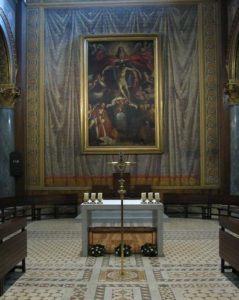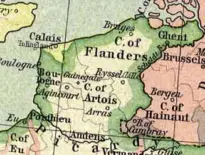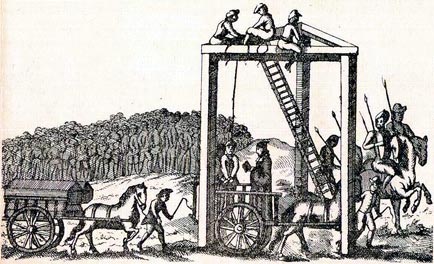
Interior of the Church of the Venerable English College, Rome
When Polydore returned to England in 1588, he ministered in Sussex and London until 1591, at which point he was captured on 2nd November. He was captured in London at Swithun Wells’ house, where Edmund Gennings was celebrating Mass alongside other fellow Catholics who were captured beside Polydore.
On 4th December 1591, Polydore was tried with Edmund Gennings, Eustace White, Sydney Hodgson, Swithin Wells and John Mason at Westminster Hall. He was accused of being Catholic and entering the country contrary to the law. Polydore and his fellow Catholics were found guilty and sentenced to death.
On 10th December 1591, Polydore acknowledged Elizabeth I as his lawful queen, stating that he would defend her from her enemies. He also stated that he prayed for her and the country but said that he couldn’t deny his religion for her or anyone. Polydore was then hanged, drawn and quartered at Tyburn. Following Sir Walter Raleigh's orders, however, he was allowed to hang until he was dead, with the subsequent sentence carried out on his corpse.
He was beatified in 1929 and eventually canonised in 1970 by Pope Paul VI. Polydore is one of the 40 martyrs of England and Wales.
by Georgia Whitehead
Georgia has just finished her masters in Classics at the University of Edinburgh. Academically, Georgia is interested in early Christianity, with her master's thesis focusing on "The Male Gaze and Self-Representation in Female Christian Narratives". In addition to her interest in ancient history, she has always been an avid lover of the Tudor era, drawn to the magnificence of the Tudor courts and the larger than life characters. She is particularly interested in The Reformation, Christianity and the shifting sands of ecclesiastical politics in this period and also has a keen interest in the lives of Tudor women. It is Georgia's ambition to become a writer, perhaps publishing her own Tudor novel one day.
Georgia also runs a history blog and instagram page called Historia Mundis.



Leave a Reply